And goodbye!published at 17:28 British Summer Time 28 May 2021
We'll be back with more updates from the UK and around the globe tomorrow.
Your live blog team today has been James Clarke, Emma Harrison, Hamish Mackay, Ella Wills and Chris Clayton.
About 60,000 people in the UK would test positive for coronavirus, up from 54,000 people a week earlier, latest ONS estimates show
Glasgow is to remain in level three of Scotland's Covid-19 restrictions for another week
Janssen’s single-dose COVID-19 vaccine has been authorised for use by the UK medicines regulator
The EU's medicines agency has approved the Pfizer-BioNTech vaccine for 12-15-year-olds
Vaccines mean "we are in very different place" from the autumn, scientist Dr Mike Tildesley says
Prof Andrew Hayward warns people with only one dose of the vaccine could end up in hospital, even if they are young
Business Secretary Kwasi Kwarteng says he sees "nothing in the data that will delay" June's lifting of restrictions in England
Another 10 deaths within 28 days of a positive Covid test are recorded in the UK
Edited by James Clarke
We'll be back with more updates from the UK and around the globe tomorrow.
Your live blog team today has been James Clarke, Emma Harrison, Hamish Mackay, Ella Wills and Chris Clayton.
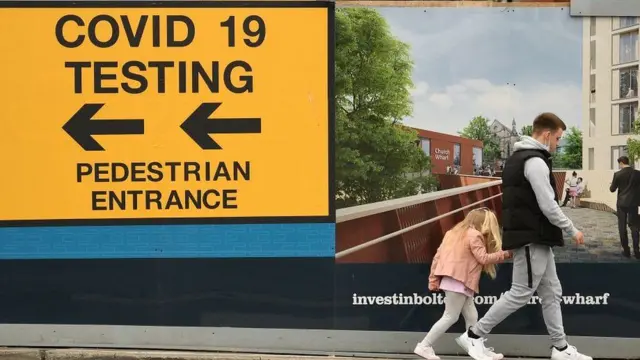 Image source, Getty Images
Image source, Getty ImagesThank you for joining our live coverage of the coronavirus pandemic. We're about to bring things to a close for the day.
Here are the latest headlines:
 Stephanie Miskin
Stephanie Miskin
BBC News
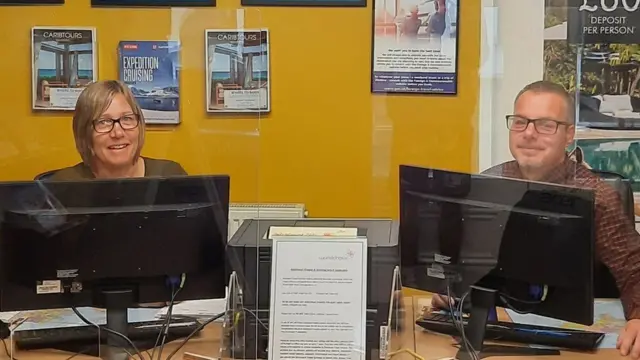 Image source, Bromyard Travel Services
Image source, Bromyard Travel ServicesJackie and Jason have run Bromyard Travel Services in Hereford for the past 12 years
Months of no bookings, holidays being cancelled or rearranged and no idea what the future holds - one independent travel agent explains how the past 18 months have been a "living nightmare".
Jason Young has wrestled both financially and mentally as he's tried to keep the family business afloat.
Bromyard Travel Services was a thriving business in the centre of the market town of Hereford for the past 12 years. Today, it is at a crossroads after "being in a state of limbo" since early 2020.
Repeated lockdowns have left customers cancelling or changing their holidays to a later date, leaving Jason and his wife Jackie out of pocket despite being busier than ever adjusting customers' holiday plans.
He has taken a second job as a supermarket delivery driver, which he says has helped his mental health.
With question marks hanging over travel restrictions throughout 2021, and fears consumer confidence will take a long time to be restored, Jason is not sure what the future holds.
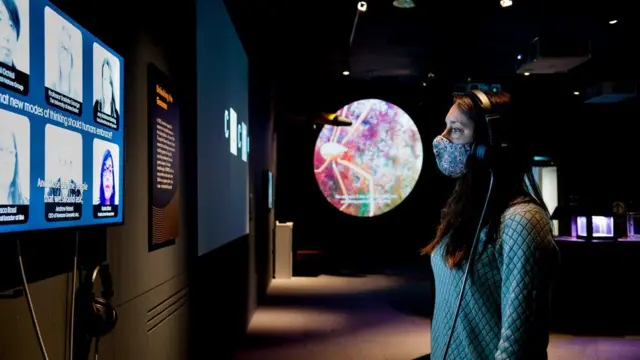 Image source, PA Media
Image source, PA MediaLiverpool's World Museum is currently hosting the AI More Than Human exhibition
A museums group whose donations dropped by 95% during the coronavirus pandemic has set up a fundraising appeal in a bid to avoid making cuts.
National Museums Liverpool welcomed 200,000 visitors in 2020 compared to the usual three million per year.
Head of development Rowena Dean says: "We usually get £400,000 a year through donation boxes so you can see how devastating that is."
The group aims to raise £5,000 by mid-June.
It runs seven attractions including the International Slavery Museum, Merseyside Maritime Museum and the Walker Art Gallery.
The venues reopened last summer but were closed again when further restrictions kicked in.
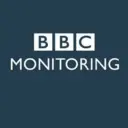 BBC Monitoring
BBC Monitoring
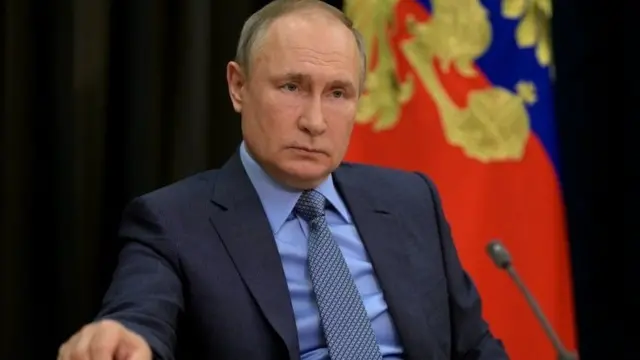 Image source, Reuters
Image source, ReutersRussia's current rate of vaccination is "insufficient", with only 8% of the population fully vaccinated, the country's Academy of Sciences says.
In a statement on its website, the Presidium of the Russian Academy of Sciences says despite jabs being available to the public for months "the rate of vaccination remains low".
"So far, only 11% of residents have received the first dose of the vaccine, 8% have completed vaccination," it says.
The academy is calling on people "not to postpone their vaccination" - an appeal that has also been made recently by most senior officials, including President Vladimir Putin.
Polls have shown muted enthusiasm for jabs among Russians. Only 30% said in February they were willing to receive the country's Sputnik V vaccine, according to independent pollster Levada Centre, while a survey this month by the SuperJob website found 42% of those still unvaccinated did not want a Covid-19 jab "under any circumstance".
Vaccination is voluntary in Russia and the Kremlin denies it would seek to make it compulsory.
However, some officials have spoken publicly about the idea, and earlier this week Russia's far-eastern Republic of Sakha (Yakutia) was forced to walk back suggestions it would make jabs obligatory after announcing 200,000 rouble fines for employers who fail to provide a jab for their staff.
 Ian Youngs
Ian Youngs
Entertainment and Arts Reporter, BBC News
 Image source, Ray Jefferson
Image source, Ray JeffersonAs arts venues attempt to get back on an even keel, Bolton's Octagon theatre has had more unfortunate timing than most.
It first announced its reopening after a two-year redevelopment as Covid loomed last February, only to face closure soon after.
Then it finally opened its doors this week - but the town is now a Covid hotspot once again.
"We had such an amazing feeling when we announced the new season [in early 2020]," says chief executive Roddy Gauld.
"Covid was this thing that was happening in the news elsewhere. Hundreds of us sat in a cinema as we revealed what the shows were going to be. Sales were instantly buoyant. The reaction was great.
"And then a couple of weeks later, we were sending everyone home, saying: 'We don't know when we're going to see you again.'"
You can read the full story of the theatre's fight for survival here.
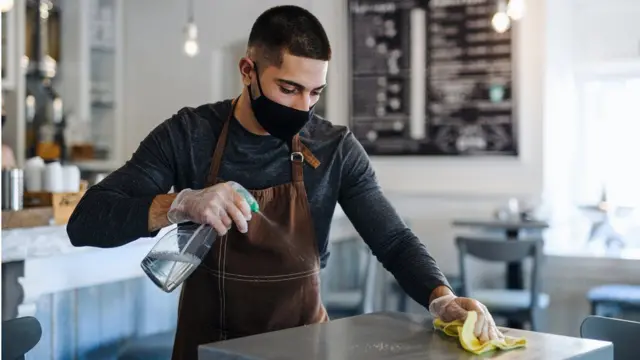 Image source, Getty Images
Image source, Getty ImagesHospitality venues are struggling to fill thousands of job vacancies, according to an industry body.
UK Hospitality says waiting staff and chefs are in particular demand as Covid-19 restrictions continue to ease.
It is calling on the government to stick to its plan to lift all Covid restrictions in England on 21 June.
The government says it is "doing everything we can to support hospitality".
The sector has been has been hit hard by the pandemic, and is also facing shortages due to Brexit, the trade body says.
From last week pubs, restaurants and cafes were able to serve customers indoors in England, Scotland and Wales, while restrictions in Northern Ireland were relaxed this week.
But even before those restrictions lifted, hospitality venues were struggling to find staff.
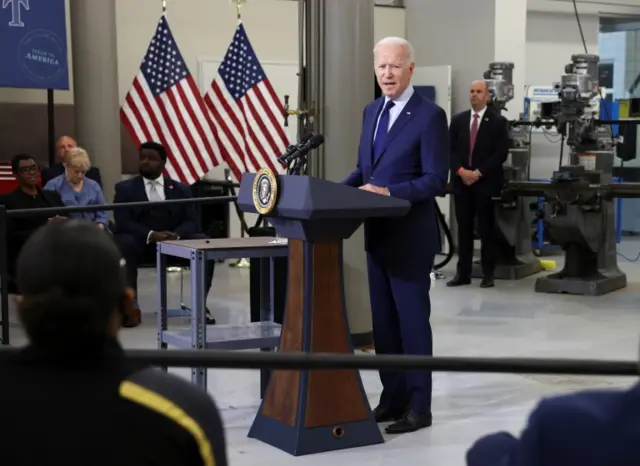 Image source, Reuters
Image source, ReutersUS President Joe Biden will propose his 2022 budget later today - a $6tn (£4.24tn) plan that would add more than $1tn annually to the federal deficit.
The sweeping plan, which tops Donald Trump's $4.8tn proposal last year, promises infrastructure upgrades and an expanded social safety net after spikes in unemployment seen during the Covid crisis.
The proposal will be given to Congress and needs approval to be implemented. If passed, it will bring the US to spending levels not seen since World War Two.
The budget provides a picture of a president's priorities – as well as how this administration thinks the economy will recover from Covid.
The Pfizer-BioNTech coronavirus vaccine has been approved for children aged between 12 and 15 in the European Union, its medicines regulator has said.
Up to now, it has only allowed its use in those aged 16 and over.
The decision will need to be formally approved by the European Commission, and then individual EU member states can decide whether to let those aged 12 and over get the jab.
Germany has already indicated it will allow this from early June.
The European Medicines Agency says the results of a clinical trial involving 2,000 12 to 15-year-olds showed they had similar or better immune responses than those seen in young adults.
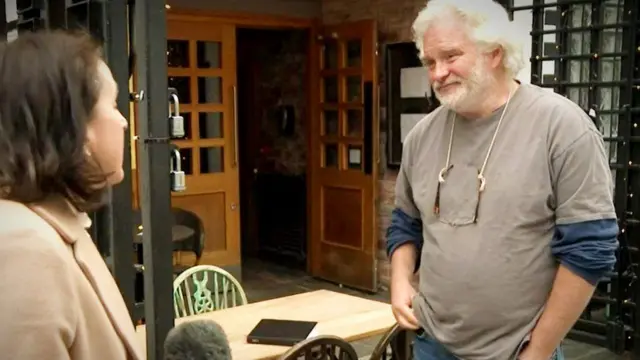
Ubiquitous Chip co-owner Colin Clydesdale tells the BBC the news came as no surprise
Businesses and politicians have expressed frustration over Glasgow remaining in Level 3 restrictions.
The area is the only Scottish council under the harsher measures despite speculation it could have moved to Level 2.
Before the news emerged, residents in the city told the BBC they felt "broken by Covid" and while they were continuing to make lifestyle adjustments, the length of the lockdown had left them feeling "institutionalised".
Following the announcement, Andrew McRae, Scotland policy chair for the Federation of Small Businesses, says the city is becoming used to "weekly Friday disappointments".
But Colin Clydesdale, co-owner of west end restaurant Ubiquitous Chip, says the news has come as no surprise after "so many false starts".
He tells the BBC: "What I've been saying is for this industry to come out of this in any semblance of reality it's got to get open as quickly as possible. It's got to start paying for itself again."
Rachel Schraer
BBC Health Reporter
As we reported earlier, Office for National Statistics figures suggest Covid cases in the UK remain low, but there are signs of a small increase.
The ONS regularly swabs a random sample of the population to estimate levels of the virus, even in people who don't have symptoms or don't get tested.
Almost half of the infections picked up look like they are probably caused by the variant first identified in India.
But national data suggests it is still confined to a handful of areas.
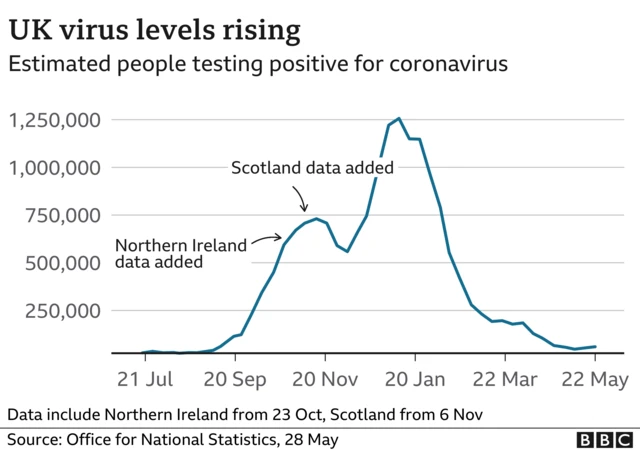
An estimated 60,000 people in the UK were infected with coronavirus in the week leading up to 22 May, an increase of roughly 10% from 54,000 people the previous week.
That equates to 0.09% of the population - or one in 1,080 people.
So there is still not a lot of Covid around compared with the winter peak.
But there have been signs of increases in England, Scotland and Northern Ireland in the previous fortnight. In Wales, cases remain stable.
So far, this rise across the UK is small - but data suggests there are larger rises concentrated in just a few local authorities.
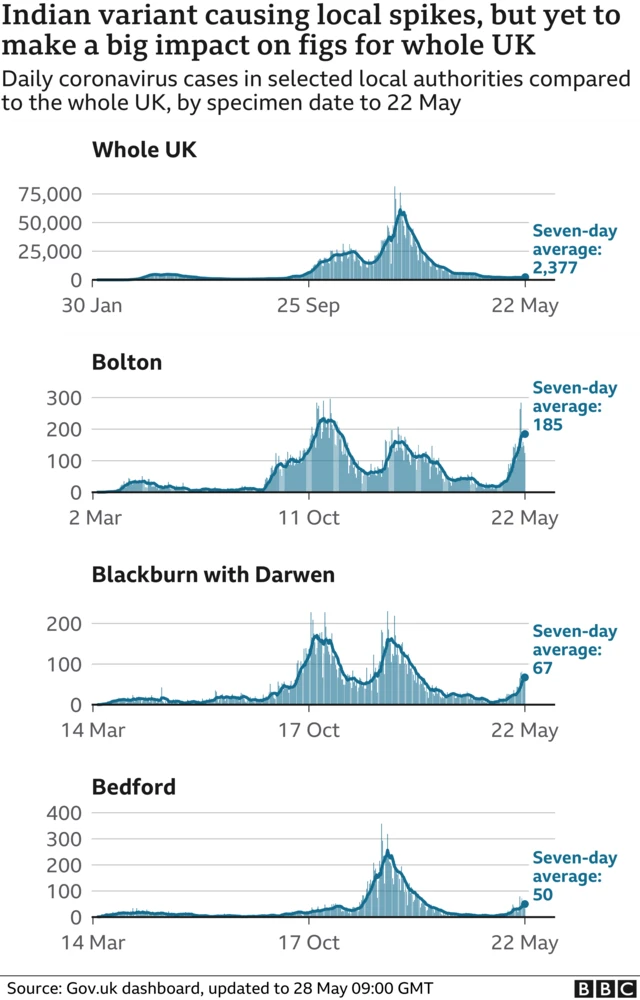
Another 10 people have died within 28 days of a positive coronavirus test in the UK, and there are 4,182 more cases, the latest figures show, external.
Some 38,871,200 people have now had a first dose of a Covid vaccine, and 24,478,052 people have had a second.
The approval of the Janssen single-dose Covid vaccine means there are now four different vaccines approved for use in the UK.
The three other vaccines, already in use, are those developed by Pfizer-BioNTech, Moderna and Oxford-AstraZeneca.
Pfizer and Moderna both developed RNA vaccines - a new approach that is incredibly quick to design.
They inject a tiny fragment of the virus's genetic code into the body, which starts producing part of the coronavirus and pushes the body to mount a defence.
These have been approved for use in the UK, Europe and the US.
The Oxford vaccine is subtly different as it uses a harmless virus to carry the same genetic material into the body. This has been approved in the UK and Europe.
It is the easiest of the three to use as it can be stored in a fridge, rather than needing very cold temperatures.
The Janssen vaccine can be given to people aged 18 and over and is likely to be used as a booster jab for care home residents ahead of winter because it can be easily stored and transported at fridge temperatures.
Read more: The vaccines that work - and the others on the way
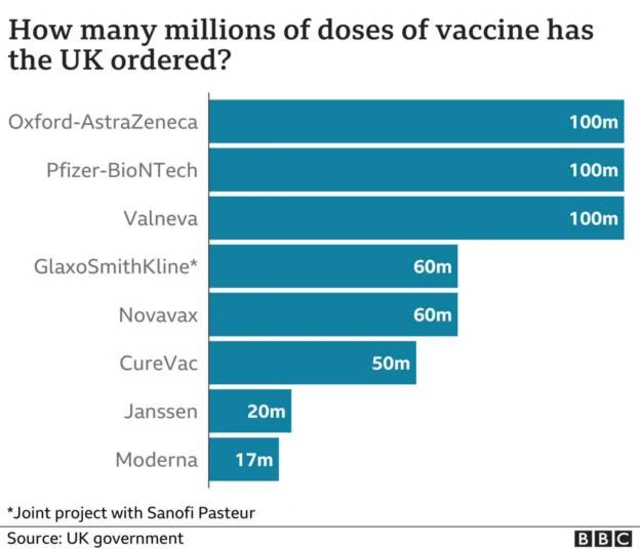
As we reported earlier, restrictions in Glasgow will not be eased until next week at the earliest.
First Minister Nicola Sturgeon says Covid cases are still high in the city, but public health measures are helping to "stabilise" the situation and there are "signs of progress".
If you missed her midday press conference, you can watch a clip from it here:
Covid in Scotland: Glasgow cases high but 'signs of progress'
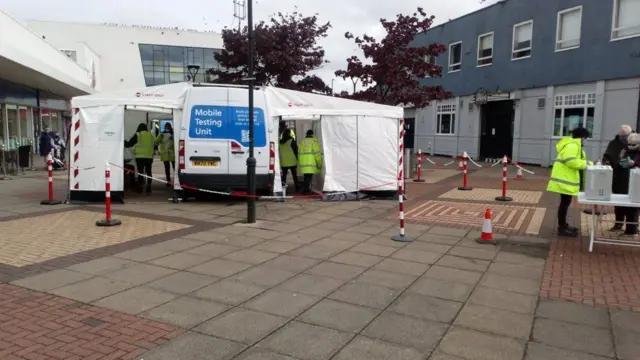 Image source, North Tyneside Council
Image source, North Tyneside CouncilMobile testing units will stay in place in North Tyneside until Wednesday after a spike in cases of the so-called Indian variant of the virus.
So far, 58 cases of the variant have been discovered in the borough in north-east England, which prompted the introduction of surge testing and extra vaccination sessions.
North Tyneside saw a total of 56 cases per 100,000 people in the week to 22 May, up from 36 the week before.
The council says it will continue to monitor the situation.
As we've been reporting, a single-dose Covid vaccine made by Janssen has been approved for use in the UK.
Scotland's First Minister Nicola Sturgeon has welcomed the decision, saying: "It's really good news, any new vaccine, if it's approved, manufactured and then we get supplies of it, is great."
But she adds: "We're focused right now on the supplies we actually have and getting them into people's arms as quickly as possible."
Sturgeon also says Scots should do their "civic public duty" and get vaccinated.
At a Covid briefing she says: "Getting vaccinated is in all of our best interests, whatever age we are."
 Rhoda Odhiambo
Rhoda Odhiambo
BBC health reporter, Nairobi
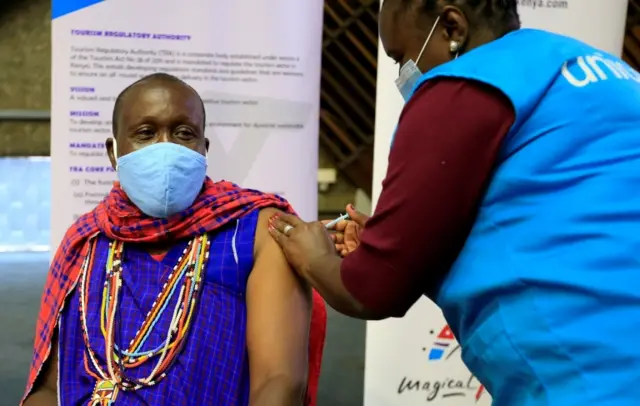 Image source, Reuters
Image source, ReutersThe jabs will be for the more than 950,000 Kenyans who have had their first vaccine
Kenya’s health ministry has advised hospitals to stop giving first doses of the AstraZeneca Covid-19 vaccines.
Health Minister Mutahi Kagwe says a shipment arriving on Friday from global-sharing scheme Covax is meant for those due for their second shots.
More than 950,000 Kenyans who received their first jab of the Covid-19 vaccine in mid-March will receive the booster shots from Friday.
Kagwe says under the current circumstances it will be better to ensure that these people are fully vaccinated.
A single dose of the AstraZeneca vaccine gives about 70% protection for at least 12 weeks and 81% after a full dose.
The minister says those who are yet to be vaccinated will be given other vaccines such as Janssen, which is manufactured by Johnson & Johnson.
But it is still not clear when they will be delivered.
 Robert Cuffe
Robert Cuffe
BBC head of statistics
Scientists are increasingly confident that the epidemic is growing in England.
This shift is reflected in their estimate of R – the number of people each infected individual passes the virus to.
Last week, it was somewhere between 0.9 and 1.1 (maybe shrinking, maybe growing) and now they think it’s between 1 and 1.1 (so almost certainly growing, albeit slowly).
The figures in Scotland and Northern Ireland still allow some possibility that their pandemics might be shrinking and the Welsh estimate is lower still (0.8-1.0).
They do warn about reading too much into precise figures for R. When case numbers are low a single outbreak in one part of the country can really skew the numbers.
But a return to a growing epidemic won’t be a shock to most – society is opening up again and we’re dealing with a newer type of coronavirus that seems to be spreading faster than the one we were used to.
Infections and cases have been rising slowly over the past two weeks, and the rises aren’t just in the variant hotspots.
We’re also starting to see rises in the number of people going into hospital. But we’re still a long way from the picture we saw over the winter.
Fewer than one-in-1,000 people have coronavirus, according to the latest estimates from the ONS.
That is up by about a quarter in the past fortnight, but is still far below the levels we saw last winter and the growth is slower than we saw at that time too.
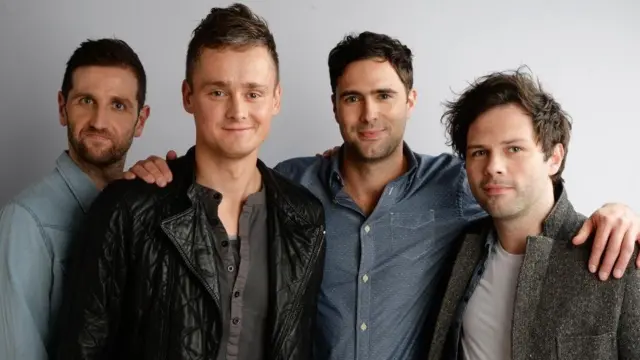 Image source, Getty Images
Image source, Getty ImagesKeane had been due to perform at the festival
A festival in north-east England that was expected to attract more than 100,000 people has been cancelled amid uncertainty over the easing of coronavirus restrictions.
The Mouth of the Tyne Festival had been scheduled to take place in Tynemouth from 8-11 July, having already been scrapped last year.
Keane were due to perform as one of the event's headliners.
The festival is now expected to return in July 2022.
Organisers say the decision was made with "a heavy heart".
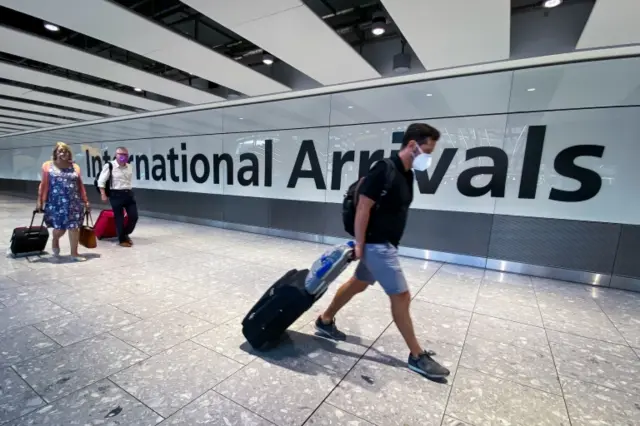 Image source, PA Media
Image source, PA MediaMore than 42,000 passengers flew between India and the UK in April, figures from the Civil Aviation Authority show.
The authority has not provided a breakdown of which passengers were travelling from India to the UK and how many from the UK to India.
During April non-essential travel was banned from the UK and those arriving were expected to quarantine. People were allowed to travel abroad for a limited number of reasons, such as education or work.
India was put on the red list from 23 April over concerns of the variant that was first found there. This means only UK residents would be allowed into the UK from India and they must pay for 11 days of quarantine at a hotel.
Pakistan and Bangladesh were put on the red list on 9 April and the UK government has been criticised for not putting India on the list at the same time.
The Indian government limited the number of flights between the UK and India to 30 a week in January over fears of the UK variant. These limitations were still in place in April.